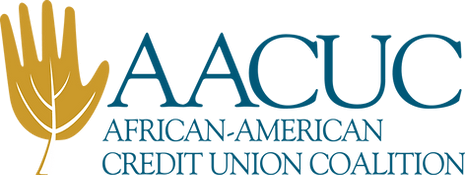Why we must stand strong for DEI in a time of resistance

Why we must stand strong for DEI in a time of resistance

Diversity, Equity, and Inclusion (DEI) initiatives are under fire. Critics argue that DEI programs are divisive, unnecessary, or even counterproductive. From political leaders passing legislation to curtail DEI programs in schools and businesses, to social media voices decrying them as acrimonious or unnecessary, the opposition is relentless.
In corporate boardrooms, some companies are scaling back their DEI commitments, citing economic pressures or fears of political backlash. The backlash may seem overwhelming. Efforts continue to be important because the future of a more equitable society depends on it.
DEI is not just a passing trend. It was never about the buzzwords. It represents the ongoing effort to create spaces where everyone has the opportunity to succeed, regardless of their race, gender, sexual orientation, disability, or other identity markers. It is about addressing the long-standing inequities that still shape who gets ahead and who is left behind in our workplaces, schools, and communities. Yes, there is resistance. But resistance is often the strongest just before change takes root.
The fact that DEI is being discussed in boardrooms, classrooms, and across legislative floors indicates that the message is getting through. The visibility of these issues is forcing uncomfortable but necessary conversations about race, gender, ability, and inclusion. While it’s tempting to retreat in the face of opposition, it’s crucial to remember that this is the point where real progress can be made. We cannot let the fear of backlash undermine the strides made.
The current opposition to DEI can be discouraging, but history tells us that every significant social movement encounters resistance, especially when it begins to challenge entrenched systems of stubborn inequities. The civil rights movement, women's suffrage, LGBTQ+ rights—none of these movements achieved success without fierce backlash.
This is because the status quo doesn’t yield easily. When DEI initiatives push for equal opportunity and representation, they often unsettle those who benefit from the existing systems of privilege. The louder the opposition becomes, the clearer it is that these initiatives are having an impact. The pushback is not a sign that DEI has failed, but a testament to the work already being done to create real, lasting change.
In the corporate world, some businesses are scaling back DEI programs, citing budget cuts or political risks. But this shortsighted approach misses the long-term benefits of diverse and inclusive workplaces. Countless studies have shown that diversity enhances innovation, drives better decision-making, and leads to more profitable companies.
A 2020 McKinsey report found that companies with greater diversity in leadership teams were more likely to outperform their peers financially. Similarly, research from Harvard Business Review, Filene Research Institute and the African-American Credit Union Coalition findings show that companies with inclusive cultures are eight times more likely to achieve better business outcomes.
An instrumental part of the business argument for diversity is supported by the notion that the risk of failure could be mitigated by exploring more options. Business mistakes often come about from leaders who neglect to consider alternatives. A team of individuals with a diversity of lived and professional experiences improves the necessity of issue spotting when evaluating strategies.
In a world that is more interconnected and global than ever, companies cannot afford to remain homogeneous. Today's consumers, especially younger generations, are increasingly values-driven. They are more likely to support businesses that align with principles of diversity and fairness. Companies that abandon DEI are not just risking internal dissatisfaction—they are alienating a customer base that values inclusion.
The goal of DEI is not to provide an unfair advantage to certain groups—it is to create equity by addressing the systemic barriers that prevent equal access to opportunity. This is more than a moral responsibility. When we push for more diverse and inclusive workplaces, schools, and communities, we are pushing for a future in which all people are valued and given the tools to succeed.
DEI advocates must remain vigilant and proactive, even in the face of growing resistance. This is not the time to scale back or give in to political and social pressures. Instead, it’s the time to reinforce the message that diversity, equity, and inclusion are not optional add-ons—they are critical to creating a fair and prosperous society.
To those who believe that DEI is no longer necessary, or worse, harmful, I ask you to consider what happens if we stop. The challenges that these programs address—racism, sexism, ableism, and other forms of discrimination—do not simply disappear when we stop talking about them. If anything, they worsen in the absence of deliberate effort to counteract them.
The way forward is clear: we need to engage in deeper education about why DEI matters, continue to push for systemic change, and ensure that our workplaces and communities reflect the diversity of the world we live in. This is not just the responsibility of DEI professionals or HR departments—it is the responsibility of all of us, as individuals and as a society.
In times of resistance, it’s easy to become disheartened. But we must remember that the path to progress is rarely smooth. Every step toward a more equitable society has faced opposition, but the arc of history bends toward justice when we persist.
The road ahead may be challenging, but it is navigable. Social change has never been easy, and every advancement toward a more inclusive society has faced setbacks. But by continuing to fight for DEI initiatives, we honor the progress we’ve made, and we hold firm in our belief that a more equitable future is possible.
It is more imperative than ever that the work we begun to codify an 8th Cooperative Principle. This Principle demonstrates in meaningful and tangible way that all members matter. This statement expresses that we are intentional about making the Movement work for everyone.
The opposition we see today is loud, but it does not represent the majority. The majority of people understand the value of fairness and equality, even if they don’t always know how to achieve it. That’s where DEI comes in. It provides the frameworks and tools necessary to create spaces that are welcoming and equitable for all. If we give up now, we risk losing the progress we’ve made and stalling the work that remains to be done.
Instead, we must use this moment as a rallying cry. We need to continue the fight for diverse, equitable, and inclusive workplaces, schools, and communities—not just because it’s good for business, but because it’s the right thing to do. And because, ultimately, we all benefit from a society where everyone has the opportunity to thrive. The fight for DEI is far from over, and that should give us hope—not despair. The pushback we see is a sign that we’re on the right track, challenging old systems and building new ones. If we stay the course, the future will be one where equity is not the exception but the rule. And that future is worth fighting for.
Original article available here.
Additional Info
Source : CUInsight.com
Related Links : https://www.cuinsight.com/why-we-must-stand-strong-for-dei-in-a-time-of-resistance/
